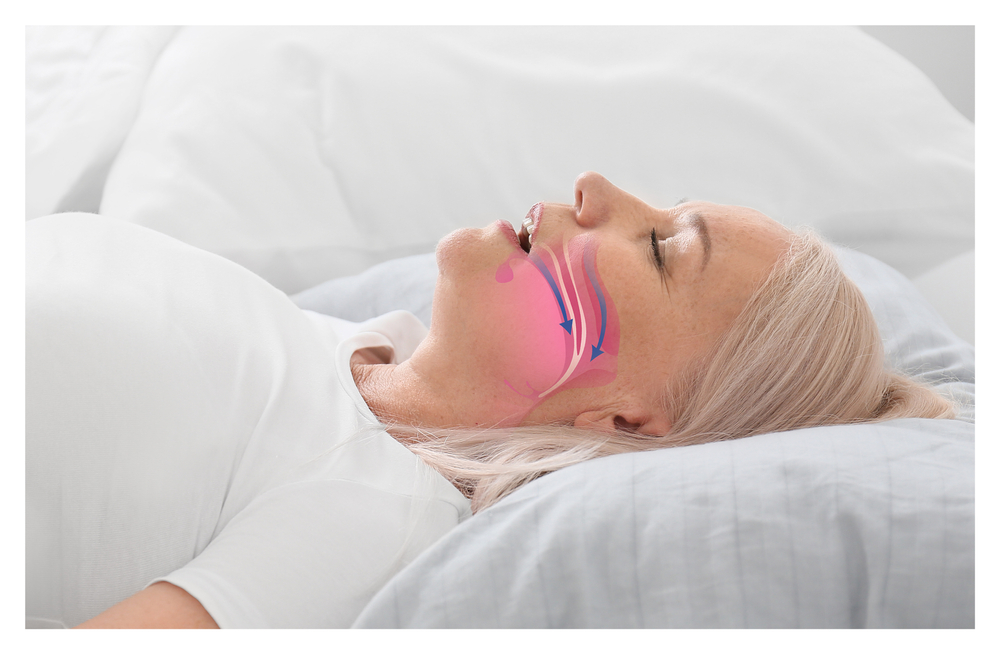Sleep apnea is more than just a bad night’s sleep or loud snoring—it’s a serious health condition that affects both mental and physical well-being. Often overlooked, this disorder can lead to chronic fatigue, anxiety, depression, and even severe health issues such as heart disease and stroke. By shedding light on the true impact of sleep apnea, we can better understand its far-reaching effects and take steps to protect our overall health. Ana Gomez Arinero, Clinical and Forensic Psychologist, Adult Specialist at Sage Clinics tells us all we need to know.
Sleep apnea is a prevalent yet serious sleep disorder that affects millions of people worldwide. It is defined by recurrent interruptions in breathing during sleep, resulting in sleep fragmentation and intermittent hypoxia (insufficient oxygen at the tissue level). Untreated sleep apnea can result in numerous health complications. here we explore the profound impact of sleep apnea on physical and mental health, highlighting the importance of diagnosis and management.
Understanding Sleep Apnea
There are three main types of sleep apnea: obstructive sleep apnea (OSA), central sleep apnea (CSA), and complex sleep apnea syndrome. OSA, the most prevalent form, occurs when the throat muscles relax excessively, causing a temporary blockage of the airway. CSA, on the other hand, involves a failure of the brain to signal the muscles to breathe. Complex sleep apnea syndrome is a combination of both OSA and CSA.
What are the common symptoms of sleep apnea?
Some of the frequent symptoms include loud and chronic snoring, episodes of breathing cessation during sleep witnessed by another person, gasping for air during sleep, awakening with a dry mouth or sore throat, morning headaches, difficulty staying asleep (insomnia), excessive daytime sleepiness (hypersomnia), difficulty paying attention while awake, irritability, mood swings, difficulties with memory and concentration.

How does sleep apnea affect physical health?
Sleep fragmentation and chronic intermittent hypoxia (CIH) are linked to a cascade of events affecting the sympathoadrenal system, oxidative stress, systemic inflammation, and changes in adipokines (cell-signalling molecules produced by the adipose tissue that play functional roles in the body’s energy/metabolic status, inflammation, obesity, etc.). These factors increase the risk of cardiovascular and metabolic diseases, including diabetes. Those relationships have shown to be complex and bidirectional.
Repeated oxygen deprivation due to repeated interruptions in breathing strains the cardiovascular system, causing the heart to work harder, resulting in high blood pressure (hypertension), which is a major risk factor for heart disease and stroke. Untreated sleep apnea has been correlated with a higher risk of developing arrhythmias, heart attacks, and congestive heart failure (condition in which the heart can’t pump blood well enough to meet the body’s needs)
Sleep apnea has been significantly associated with dysfunction of key steps in hepatic lipid metabolism, atherosclerosis (vascular condition characterized by arterial narrowing), hepatic steatosis (fatty liver) and fibrosis, each of which is pertinent to the development and/or progression of non-alcoholic fat liver disease (NAFLD) and to a more severe form of this disease called non-alcoholic steatohepatitis (NASH), what causes the liver to swell and become damaged due to the fat deposits in the liver.
Sleep apnea has also been associated with insulin resistance and type 2 diabetes mellitus
(T2DM). Sleep fragmentation, CIH and changes in autonomic tone all have the combined effects of increasing sympathetic activation, causing alterations in the HPA axis, increasing oxidative stress, and activating inflammatory pathways. These, in turn, can result in insulin resistance and pancreatic dysfunction.

How does sleep apnea affect mental health?
Sleep apnea has the following implications for mental health:
Excessive daytime sleepiness, called hypersomnia and fatigue, leading to difficulties maintaining focus, increased irritability, and a higher risk of accidents due to reduced alertness.
Cognitive impairment resulting from sleep fragmentation or repeated interruptions due to breathing pauses. It affects memory, attention, the ability to process and consolidate information, performance on daily tasks, and increases the risk of accidents.
Mood conditions, such as depression and anxiety, due to chronic sleep deprivation and hypoxia, affecting brain chemistry and leading to changes in mood regulation.
Reduced Quality of Life because of the cumulative effects of daily hypersomnia, cognitive fatigue, cognitive impairment, and mood disturbances, affecting the capacity to enjoy, provoking isolation and affecting overall wellbeing

What are the available treatment options for sleep apnea?
Sleep apnea is a complex condition that is bidirectionally related to metabolic and cardiovascular conditions. The first step is to undergo a comprehensive medical evaluation. Addressing metabolic conditions will positively impact and can even cure some OSA cases.
Specific treatments to improve the constant supply of oxygen are the following:
Continuous Positive Airway Pressure (CPAP) Therapy is the primary treatment for OSA. CPAP machines deliver a continuous flow of air to keep the airway open, improving oxygen levels during sleep.

Mandibular Advancement Devices (MADs) are oral appliances that reposition the lower jaw and tongue to prevent airway obstruction. They can be effective for mild to moderate obstructive sleep apnea.
Adaptive Servo-Ventilation (ASV) is a more advanced form of positive airway pressure therapy that adjusts the pressure based on the user’s breathing patterns. ASV is effective for both obstructive and central sleep apnea.
Lifestyle Changes, such as weight loss, regular exercise, avoiding alcohol and sedatives, and sleeping on one’s side can all help reduce the severity of sleep apnea.

Positional Therapy is considered for individuals with positional sleep apnea, where symptoms are worse when sleeping on their back. Using devices or techniques to encourage side-sleeping can help improve breathing
For severe cases, surgical procedures may be considered to remove or reposition tissues in the throat or to implant devices to stimulate airway muscles. These interventions can reduce the frequency and severity of sleep apnea episodes, restoring normal breathing patterns and sleep quality.
Conclusion
Sleep apnea is a complex disorder that can significantly affect our mental and physical health. It impacts everything from our heart and metabolism to our thinking and emotions, making it essential to recognize the signs early and seek comprehensive treatment. If you think you or someone you care about might have sleep apnea, reaching out to a medical professional is a crucial step toward feeling better and healthier.
For more information or to book an appointment, please contact Sage Clinics at +971 4 575 5684, at appointments@sage-clinics.com or through the chat function in the bottom right corner of the website.

